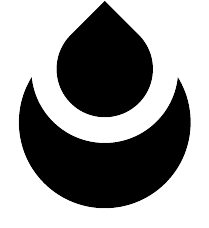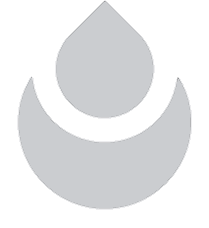Welcome to Art Of Mobility in Mississauga & Toronto, your partner in conquering myofascial pain syndrome. Our mission is to deliver tailored and innovative care to alleviate the symptoms of myofascial pain syndrome, improve your functional abilities, and enhance your overall quality of life.
Insight into Myofascial Pain Syndrome
Myofascial pain syndrome is a persistent pain condition characterized by the presence of trigger points in your muscles. These trigger points can cause deep, persistent muscle pain that can impact your daily life and mobility.
Recognizing the Symptoms
People with myofascial pain syndrome may encounter:
- Continuous Muscle Pain: A deep, throbbing pain in the muscles of varying intensity.
- Tender Trigger Points: Sensitive spots in the muscle that elicit pain when touched.
- Pain Referral: Discomfort felt in areas other than the trigger point location.
- Fatigue and Sleep Interruptions: Resulting from the persistent muscle pain.
Potential Causes
Factors contributing to myofascial pain syndrome development include:
- Muscle Strain: Caused by repetitive movements or excessive stress on the muscles.
- Stress and Tension: Leading to muscle tightness and trigger point formation.
- Postural Issues: Adding to muscle strain and discomfort.
- Inactivity: Weakening muscles and increasing susceptibility to pain.
Personalized Physiotherapy Solutions
Art Of Mobility emphasizes physiotherapy as the primary approach to treating myofascial pain syndrome. Through customized exercise programs and therapeutic techniques, we aim to release trigger points, alleviate muscle pain, and restore mobility.
Tailored Treatment Approaches
Each treatment regimen is crafted to address your specific needs, which may involve:
- Specialized Exercise Routines: Enhancing strength, flexibility, and muscle function.
- Hands-On Therapy Methods: Such as massage therapy to ease muscle tension and pain.
- Pain Management Tactics: Using heat, cold therapy, and other methods to alleviate discomfort.
- Guidance on Self-Care Practices: To control symptoms and prevent recurrence.
A Comprehensive Care Approach
We understand that effective treatment extends beyond physical symptoms, offering:
- Continuous Assessment: To refine your treatment plan for optimal results.
- Educational Support: Providing insights into your condition and self-care methods.
- Wellness Guidance: Advising on lifestyle adjustments and stress management to aid your recovery.
Discover Holistic Care at Art Of Mobility
Art Of Mobility provides a range of services tailored to address various health conditions, not limited to myofascial pain syndrome, to support your journey towards a healthier, more active life.
Why Opt for Art Of Mobility for Myofascial Pain Syndrome Treatment?
Choosing Art Of Mobility in Mississauga & Toronto means selecting a team that offers:
- Expertise in Muscle Health: Our experts are at the forefront of myofascial pain syndrome treatment, employing advanced research and techniques.
- Personalized Care Plans: Recognizing the uniqueness of each case, we devise strategies tailored to your specific needs and goals.
- Focus on Innovative Care: Committed to employing cutting-edge treatment approaches for top-quality care.
- Dedicated Support: From your initial consultation to recovery, we provide unwavering assistance at every step.
Overcome Pain and Regain Control
If myofascial pain syndrome is impacting your life, reach out to Art Of Mobility in Mississauga & Toronto. Our dedicated team is ready to help you manage pain, enhance function, and reclaim an active, fulfilling lifestyle. Begin your path to recovery with us today.
Comprehensive Treatment Offerings
|
|
FAQs on Myofascial Pain Syndrome Treatment in Mississauga & Toronto
What Sets Myofascial Pain Syndrome Apart from Other Muscle Pain Conditions?
Myofascial pain syndrome stands out due to the presence of trigger points—specific, hypersensitive areas within the muscle that can cause pain locally and in referred areas. Unlike general muscle pain resulting from injury, overuse, or inflammation that typically stays within the affected muscle, MPS involves a pattern of pain that can affect unrelated body parts. This condition often arises from muscle overuse or stress, leading to trigger point development. Treatment focuses on alleviating pain through techniques aimed at these specific points, distinguishing MPS management from other muscle pain treatments.
What Is the Typical Recovery Time with Myofascial Pain Syndrome Treatment?
The recovery duration with myofascial pain syndrome treatment varies based on factors like condition severity, treatment modalities used, and overall health. Many individuals experience pain relief and improved mobility within a few weeks of starting treatment, especially with manual therapy and targeted exercises. However, achieving long-term improvement may require ongoing management to prevent recurrence. Regular communication with your healthcare provider is crucial to monitor progress and adjust the treatment plan for optimal outcomes.
How Does Sleep Influence Myofascial Pain Syndrome Management?
Quality sleep plays a vital role in managing Myofascial Pain Syndrome by allowing the body to rest and heal. Poor sleep quality can heighten pain sensitivity, lower pain tolerance, and impede recovery. Individuals with MPS should establish good sleep habits, such as maintaining a consistent sleep schedule, creating a conducive sleep environment, and avoiding stimulants before bed. Addressing sleep problems directly through relaxation techniques may be necessary in some cases to enhance sleep quality and, in turn, alleviate MPS symptoms.
What Self-Care Practices Can Assist in Managing Myofascial Pain Syndrome?
Self-care practices are integral to managing myofascial pain syndrome and can significantly contribute to symptom relief. Regular gentle stretching exercises help preserve muscle flexibility and prevent stiffness. Using self-massage tools like foam rollers or massage balls on trigger points can relieve muscle tension. Applying heat to stiff muscles or cold packs to reduce inflammation can also be beneficial. Additionally, stress reduction techniques such as meditation, deep breathing, and yoga can help manage stress that often worsens MPS symptoms. Combining these self-care practices with professional treatment can optimize recovery and enhance quality of life.
Our Clinic Locations:
Location 1:
Art of Mobility Physiotherapy Mississauga – Port Credit
125 Lakeshore Rd E #202, Mississauga, ON L5G 1E5, Canada
(647) 695-3995
Location 2:
Art of Mobility Physiotherapy Toronto – Trinity Bellwoods
115 Wolseley St, Toronto, ON M6J 1K1, Canada
(289) 460-2894

